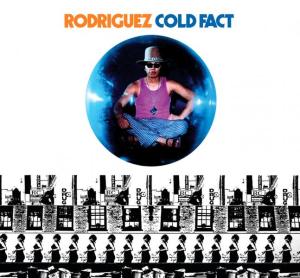 Life is full of dreams unrealised, stories that don’t end well- realities that fail to measure up to the pomp and myth of movies, so its somewhat invigorating when life does indeed equal movie fantasy. Last week I watched Searching for Sugar Man streaming on Amazon Prime and have found myself thinking about it ever since. This documentary is a remarkable piece of film-making, particularly for music fans, and is at heart an uplifting story about the triumph of art and the human spirit, of vindication and victory. Its extremely well-made, finely constructed, well edited. Its subject is something of a modern-day fairy tale, but there is a cautionary darkness surrounding it, both in the film itself and the story behind it.
Life is full of dreams unrealised, stories that don’t end well- realities that fail to measure up to the pomp and myth of movies, so its somewhat invigorating when life does indeed equal movie fantasy. Last week I watched Searching for Sugar Man streaming on Amazon Prime and have found myself thinking about it ever since. This documentary is a remarkable piece of film-making, particularly for music fans, and is at heart an uplifting story about the triumph of art and the human spirit, of vindication and victory. Its extremely well-made, finely constructed, well edited. Its subject is something of a modern-day fairy tale, but there is a cautionary darkness surrounding it, both in the film itself and the story behind it.
In 2006, Swedish film-maker Malik Bendjelloul had been backpacking around South Africa in search of ideas for documentaries and happened upon a record store in South Africa where he met the stores proprietor, Stephen Segerman, who told him a remarkable story about a singer-songwriter named Rodriguez who had been a hugely popular, albeit mysterious, figure in the country’s apartheid-era, and Segerman’s later quest to discover the truth about him that took years to accomplish.
The story that Bendjelloul had discovered was a great one, certainly as far as he wanted to tell it. Discovered singing in a seedy bar in Detroit by two music producers in 1968, Sixto Rodriguez was something of a working-class poet, a guy working as a construction labourer by day and singing his self-penned songs by night (there is of course an inherent romance in that, like something from a TV Movie Of The Week). The producers were incredibly impressed by what they heard, felt they’d stumbled upon the Next Big Thing, the next Dylan in fact. They introduced themselves to the shy, evasive Rodriguez (he’d meet them on street corners rather than at houses, for instance) and together they worked on recording an album. This first album, called Cold Fact, was released in 1970, a collection of folksy, socially engaged songs with rich melodies that somehow failed to find an audience. Undeterred by this setback, a second album, Coming to Reality, was released the following year but again sold badly resulting in the record label dumping Rodriguez. His hopes of a music career over, the Mexican singer-songwriter abandoned his music and turned to his labouring job in construction to raise his family, promptly disappearing into the last decades of the 20th century, his songs and two albums soon forgotten. Just another singer who failed to make it; there must be thousands of similar stories. Actors who never get the lucky break, authors who never get their work in print. Sad, but that’s life.
 But then something rather strange occurred- a copy of Cold Fact found its way across the world to apartheid-era South Africa. Rumour has it an American girl had the record with a few other vinyl albums that she took when she flew over to be with her boyfriend, who listened to the album and then played it for his own circle of friends. Soon word-of-mouth made the album hugely popular among the white liberal classes, who found something galvanising in the songs anti-authoritarian lyrics. Copies of the album were pressed in South Africa and sold as many as half a million copies, despite being banned from the radio. Rodriguez became “more famous than Elvis” in South Africa, although the man himself remained a mysterious figure- the country cut off from the Outside World, no one could find any biographical info about him at all in those pre-internet days, although it was widely assumed he was some big star back in America. A story later emerged that he was dead; had in fact died onstage in a mysterious suicide.
But then something rather strange occurred- a copy of Cold Fact found its way across the world to apartheid-era South Africa. Rumour has it an American girl had the record with a few other vinyl albums that she took when she flew over to be with her boyfriend, who listened to the album and then played it for his own circle of friends. Soon word-of-mouth made the album hugely popular among the white liberal classes, who found something galvanising in the songs anti-authoritarian lyrics. Copies of the album were pressed in South Africa and sold as many as half a million copies, despite being banned from the radio. Rodriguez became “more famous than Elvis” in South Africa, although the man himself remained a mysterious figure- the country cut off from the Outside World, no one could find any biographical info about him at all in those pre-internet days, although it was widely assumed he was some big star back in America. A story later emerged that he was dead; had in fact died onstage in a mysterious suicide.
So years passed- fast forward to the 1990s, and a very different, post-Apartheid South Africa. Stephen Segerman and music journalist Craig Bartholomew-Strydom started investigating into the truth about the mysterious Rodriguez, to find out about the singer and his music. Who was this singer, where was he from, was the story of his death indeed true? Starting with just the slim info on the decades-old record sleeve artwork (ambiguous song credits to both a Sixto Rodrigues and a Jesus Rodriguez) they tried to follow the money but it seemed to get them nowhere (the fact that Rodriguez never seemed to earn any royalties from those South African hit records only adds to the sense of injustice). After so many years there seemed no leads, until going back to the records and deciphering the lyrics from the Cold Fact album they found clues leading to them to far-away Detroit and the singer living there in obscurity. Incredulous, they learned that the two albums so beloved in South Africa had been utterly ignored and ultimately forgotten in America, and that their hero Rodriguez had retired from music decades ago to tough out the hard life of a construction hand and raise a family as best he could in that blighted city. The two South Africans brought Rodriguez to their home country to a hero’s welcome and an emotionally-charged sell-out concert playing his music to adoring fans, finally achieving the validation denied all those years ago.
Bendjelloul was fascinated by the story and it led him to spend the next several years making the film Searching for Sugar Man. With a soundtrack of Rodriguez’s songs and structured first as a mystery and then culminating with its one-in-a-million comeback victory with footage of Rodriguez’ victorious concert, its a modern fairy tale, an impossible-but-true story, suffused with a dry commentary on fame and celebrity and how the music industry uses and dismisses talent. Frustrated by Rodriguez’ shyness and awkwardness on-camera, Bendjelloul turns it to his advantage, maintaining the singers sense of mystery by instead having information imparted by the singers grown-up daughters. Rodriguez maintains his air of distance and nobility, an urban poet whose voice has been ignored by an ignorant, oblivious world until now. The film feels faintly manipulative, Bendjelloul knowing what tricks to pull in what he chooses to reveal and when, but its certainly a joyous and rather cathartic experience. Everyone loves a comeback against the odds.
It is indeed a remarkable impossible-but-true tale, but it isn’t all of the truth. Bendjelloul’s film infers that once dumped by his record company, Rodriguez languished in obscurity for all those years until discovered by Segerman and Bartholomew-Strydom, but in truth, Rodriguez had a further brush with fame in 1979. His albums were successful enough in Australia and New Zealand in the 1970s to get the singer two tours over there. It may have been a transitory thing (the second tour of 1981 would be the last) but its enough to dispel the myth that the singer was totally forgotten. The omission exaggerates both the sense of injustice and the victory, so its obvious why it was done.
The documentary, released in 2012, went on to become a huge success and eventually would win a BAFTA and the Academy Award for best documentary feature. Yet the following year, the Oscar-winning film-maker Bendjelloul committed suicide, jumping in front of a train in the Stockholm underground system. He was just 36 years old, his death shocking all who knew him.
I’d watched Searching for Sugar Man only days before, had since read some more about Rodriguez and listened to his two albums (thank you Youtube), and then I’d stumbled upon the obituary of the film-maker who had made the film. Of course it didn’t make sense; suicides are seldom rational events, mysteries to friends and loved ones, nevermind strangers. But I have to wonder, is it some kind of tragic post-note/amendment to the films own examination of the nature of fame and celebrity? Following the films great success… well, the common view would have it that Bendjelloul had reached the top of his profession, with all sorts of opportunities and possibilities ahead of him. How much did the attention, the fame and the pressure to follow on with further success affect him? We will of course will never know and any conjecture is utterly redundant. Its enough that Bendjelloul leaves behind one award-winning film, that has warmed and informed people the world over. Its commentary about fame and celebrity is inevitably overshadowed by the tragic events afterwards but to me that adds further poignancy to it. I am reminded that it is inferred at least that for all those years without fame or attention to his music, Rodriguez lived a fine and rewarding life anyway. The later validation of his music and reward is surely very nice but its hardly everything- in comparison its likely nothing at all, but is a remarkable story all the same.


I wasn’t too big of a fan of this, but I was happy that the movie resurrected Rodriguez from the ashes and gave his music, as well as his legend, another listen. The man deserved it, after all. Good review.
Pingback: Whatever Happened to Laurie Zimmer? – the ghost of 82
Pingback: Assault at Last – the ghost of 82